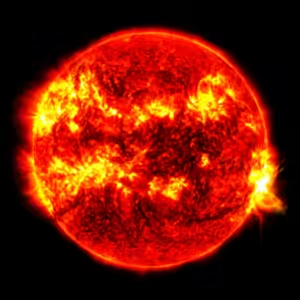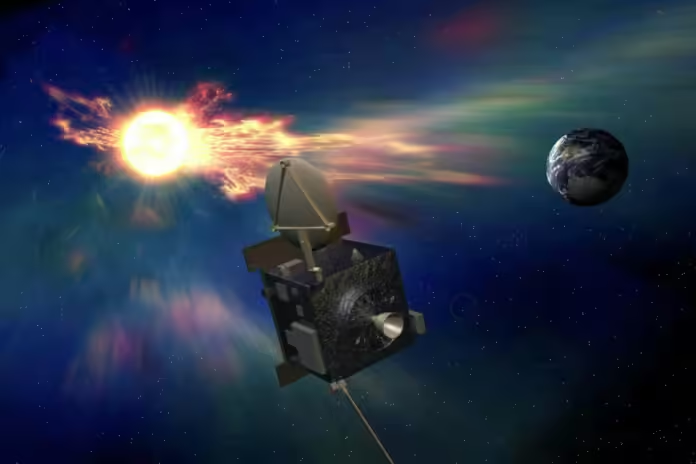The UK is set to build Europe’s first operational satellite designed to spot solar storms and other potentially dangerous space weather.
The European Space Agency (ESA) selected Airbus Defence and Space to design and build the Vigil spacecraft in Stevenage, the UK Space Agency announced on Wednesday, with its launch scheduled for 2031.
The satellite will give vital extra warning about incoming solar storms and coronal mass ejections which can potentially disrupt satellites in orbit and electronic and power distribution systems on Earth, as well as cause northern lights and auroras to appear.
Data from Vigil could provide notice of four to five days of solar winds streaming toward Earth.
Airbus lead systems engineer, Dr. Michelle Sprake, said that the spacecraft will be able to watch as coronal mass ejections form on the surface of the sun before they have even been emitted.
She added that it will also allow forecasters to “look at these events building up from our vantage point and potentially get about four or five days worth of warning because we’ll be able to view parts of the sun that we can’t normally see from Earth”.
Dr. Sprake continued: “We’ll be able to see those events forming before they’ve rotated all the way around and will line up with the Earth. So the idea is to get better predictive capability and to also do some, what they call, nowcasting.”

Vigil will be positioned at Lagrange point L5 on the same orbit as the Earth, 93 million miles (150 million kilometres) behind the planet as it orbits the Sun.
From its position, Vigil will complement other satellites monitoring the Sun from closer to the Earth.
Among the most potentially damaging events are coronal mass ejections (CMEs) from the Sun, consisting of a magnetized plasma containing protons, electrons and other charged particles.
In 1989, a major geomagnetic storm struck Earth and caused a nine-hour outage of electricity transmission across Quebec.
Advance warning of such events will enable power companies and authorities to shut down systems temporarily to protect them from power surges and ensure they can be powered up quickly after the danger has passed.
“Vigil is one of the most exciting and important space missions that will not only improve our understanding of the Sun’s behaviour but crucially provide us with earlier warning and greater precision about potentially damaging solar weather,” said Patrick Wood, head of Space Systems UK at Airbus Defence and Space.
“Space weather forecasters will be able to see what is coming from the Sun and provide more accurate alerts.”




